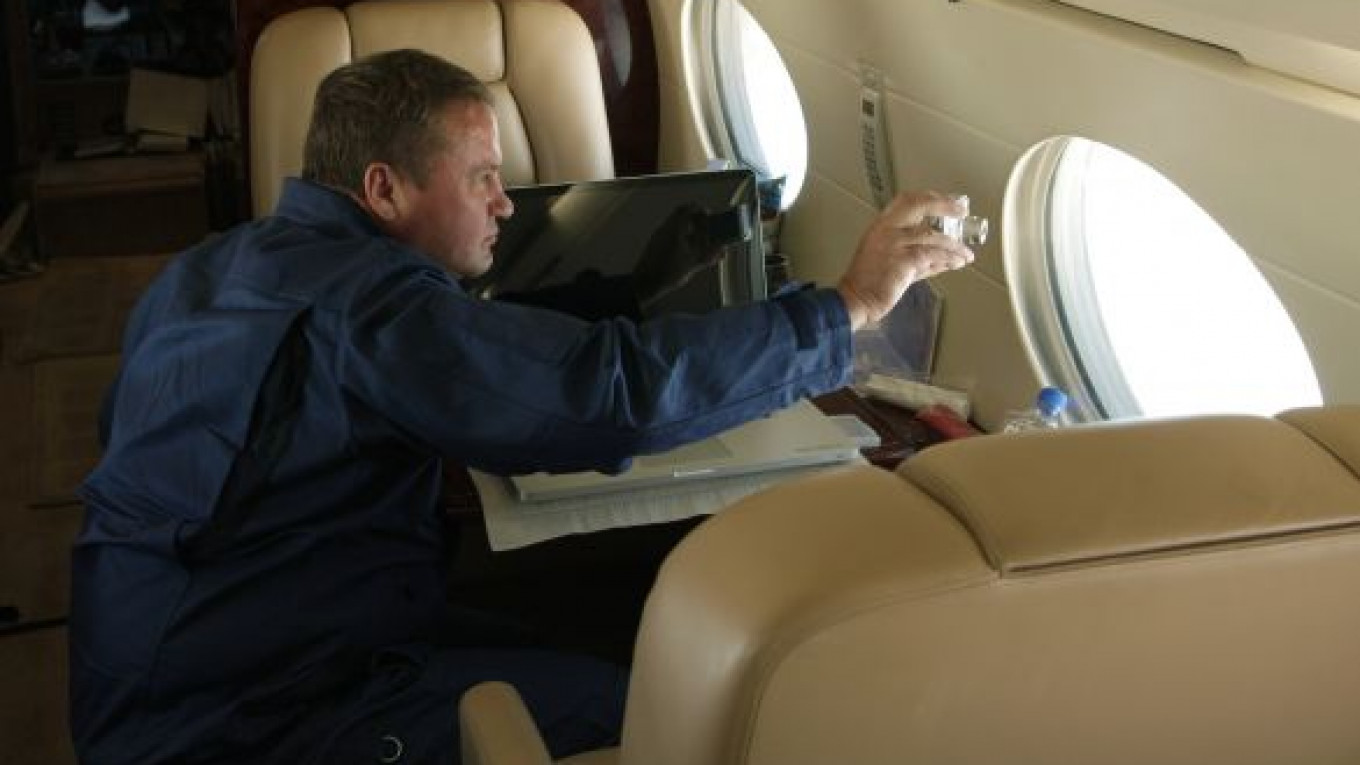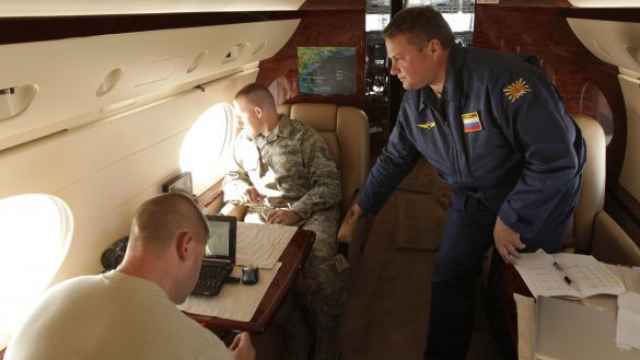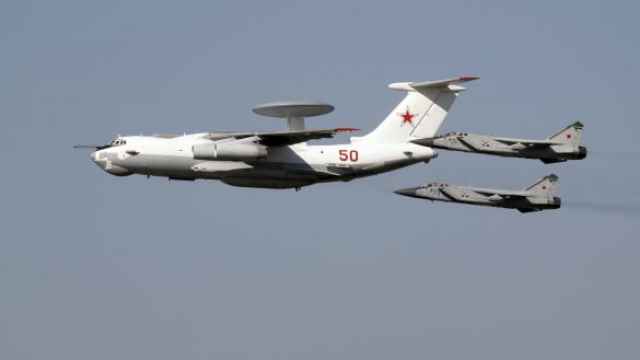OVER THE PACIFIC — A groundbreaking international training exercise will make it more difficult for terrorists to pull off a hijacking against the United States, Canada or Russia by "hardening" the air travel system against attacks, a Canadian officer said.
The exercise was scheduled to wrap up Tuesday in Anchorage, Alaska, after fighter jets from Russia and the North American Aerospace Defense Command, or NORAD, chased a chartered jet playing the role of a hijacked commercial airliner flying east across the Pacific.
The exercise is designed to test how well civilian and military aviation authorities on both sides of the ocean can coordinate their efforts during a hijacking, especially during the critical handoff stage when the commandeered plane moves from Russia's airspace into the territory defended by NORAD, a joint U.S.-Canadian command.
"I think any time that we increase our cooperation and our coordination, we harden ourselves against further events," said Canadian Forces Colonel Todd Balfe, deputy commander of NORAD's Alaska region and the senior NORAD observer aboard the "hijacked" plane — actually a high-end Gulfstream passenger jet.
"If, for example, we make it harder for terrorists to do us harm, they'll choose either not to do us harm or will look for other, more difficult manners or other ways of approaching us," Balfe said.
If terrorists do succeed in hijacking a plane, the exercise will help NORAD and Russia be prepared to respond.
Military commanders and civilian analysts say the threat of terrorism is serious for the United States and Russia. On July 29, a man caused a hijacking scare when he held a plane with 105 passengers and crew for about 2 1/2 hours at Moscow's Domodedovo Airport. The United States arrested a Nigerian man on charges of trying to blow up a jetliner over Detroit on Dec. 25.
The joint exercise, called Vigilant Eagle, began Sunday when the Gulfstream, code-named Fencing 1220, left Anchorage and headed west.
Along with Balfe, Russian Air Force Colonel Alexander Vasiliyev, U.S. Army Major Michael Humphrey and a U.S. translator were on board.
Shortly after takeoff, the Gulfstream's civilian pilots sent a digital distress code to civilian air traffic controllers in Alaska signaling that it had been "hijacked."
Civilian controllers notified NORAD, which dispatched two F-22 Raptor fighter jets to shadow Fencing 1220 and an E-3 Sentry airborne surveillance and control plane to track it.
When the Gulfstream entered Russian airspace over the Pacific, commanders in the E-3 handed over responsibility for the plane to their Russian counterparts on an A-50 Mainstay surveillance and control plane. Four Russian Su-27 fighters and one MiG-31 took turns shadowing the Gulfstream.
On the return trip, the process was to be reversed, with Russian fighters and surveillance planes shadowing Fencing 1220 for the first portion before handing off responsibility to NORAD.
Balfe and Vasiliyev said it was too early to grade the mission's success, but that everything had gone smoothly on the first leg. A detailed evaluation of the exercise is planned in September.
Both officers marveled at the historic nature of the exercise, which demanded a level of cooperation that was unthinkable during the Cold War standoff between the United States, with its allies, and the Soviet Union.
Vasiliyev said he always thought the time would come when the two former enemies would work together, but he said he never expected to be Russia's representative.
"It's a watershed moment, you could almost argue," Balfe said. "If I'd been told 20, 25 years ago I'd be sitting on a U.S.-registered airplane with a Russian colonel as my counterpart, going over through Russian airspace on this exercise, I'd have thought you were crazy."
A Message from The Moscow Times:
Dear readers,
We are facing unprecedented challenges. Russia's Prosecutor General's Office has designated The Moscow Times as an "undesirable" organization, criminalizing our work and putting our staff at risk of prosecution. This follows our earlier unjust labeling as a "foreign agent."
These actions are direct attempts to silence independent journalism in Russia. The authorities claim our work "discredits the decisions of the Russian leadership." We see things differently: we strive to provide accurate, unbiased reporting on Russia.
We, the journalists of The Moscow Times, refuse to be silenced. But to continue our work, we need your help.
Your support, no matter how small, makes a world of difference. If you can, please support us monthly starting from just $2. It's quick to set up, and every contribution makes a significant impact.
By supporting The Moscow Times, you're defending open, independent journalism in the face of repression. Thank you for standing with us.
Remind me later.






